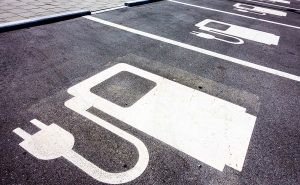
17 Yutong Electric Trolleybuses Arrive in Mexico City

Mexico City receives another important milestone in its race for the electrification of public transport.
The capital received 17 new high-tech trolleybuses manufactured in China by the company Yutong, which will operate with an electronic payment system and will be incorporated in the following days to the Electric Transport Service (STE) of the Mexican capital.
The Chief of the Government of Mexico City, Claudia Sheinbaum Pardo, explained that, with the commissioning of these 17 new trolleybuses, the country’s capital already has 337 100% non-polluting electric units, and by the end of the administration, in 2024, there will be 500.
Accompanied by her cabinet, as well as Yutong‘s Commercial Director for Mexico in the Americas Zone, Ren Wenhui, she explained that all these trolleybuses have been purchased by real estate developers who invest in non-polluting public transportation.
“Together with the ones we have acquired, the trolleybuses that are being acquired for the continuation of the elevated trolleybus that goes to Chalco, which are more than 100, and another 60 trolleybuses also from the concessioned system, in total we are going to fulfill the commitment we made to have 500 trolleybuses operating in Mexico City,” said the local governor during the presentation ceremony of the 17 vehicles.
Related content: Yutong Electric Buses with YESS Technology in Mexico City
Unit Features
The trolleybuses delivered by Yutong do not emit air pollution and, in addition, reduce greenhouse gas emissions that cause global climate change. In addition, they are much more comfortable than a bus, produce no noise and are much more convenient to use.
“We want to thank the Yutong company because they always win all the tenders. So again Yutong is integrated to this electric transport system of Mexico City,” Sheinbaum pointed out, inviting citizens to be part of the Electric Transport Service, which launched a call for the position of 200 drivers for the new generation trolleybuses.
For his part, Mexico City’s Secretary of Mobility, Andrés Lajous Loaeza, detailed that the amount of the mitigation was 127 million Mexican pesos, through a contract between private parties, as each trolleybus, 12 meters long, cost around 7.5 million pesos.
He pointed out that currently, in Mexico City, not counting these 17 additional units, 325,000 passengers are being carried on trolleybuses, thanks to the new acquisition of units and a 33 percent increase in the total number of kilometers traveled on trolleybuses, which were 33,700 to 45,000 kilometers on ten lines.





